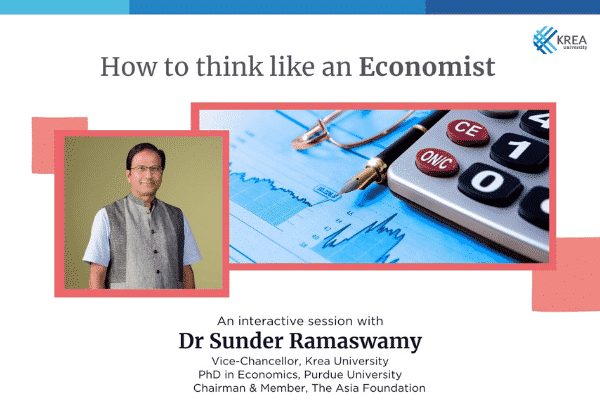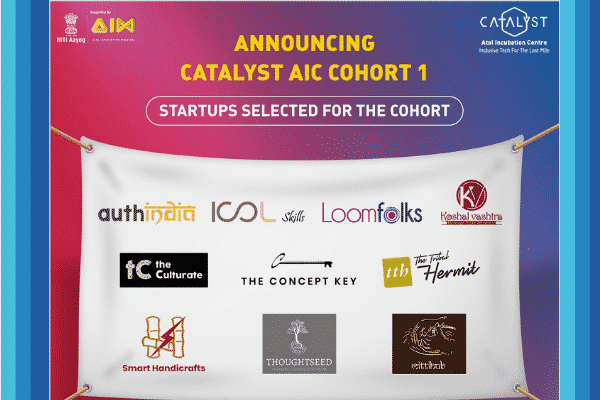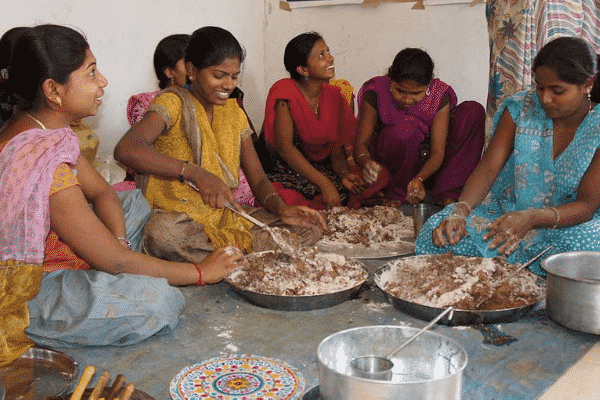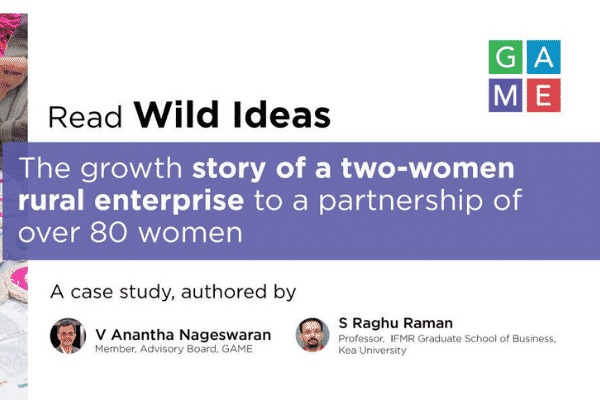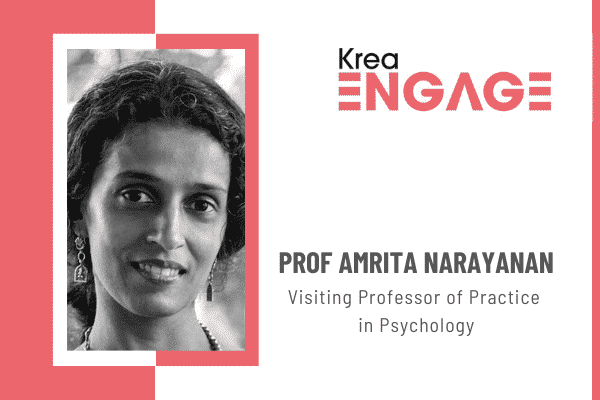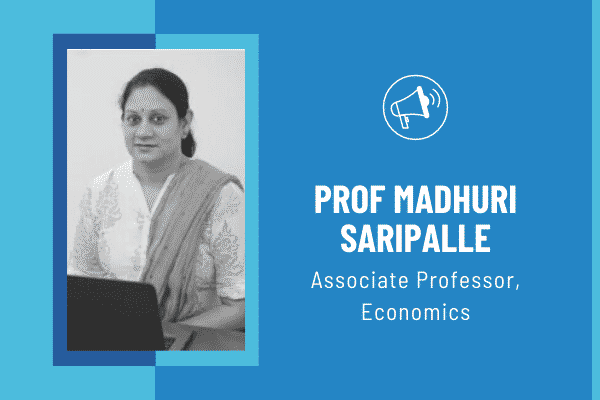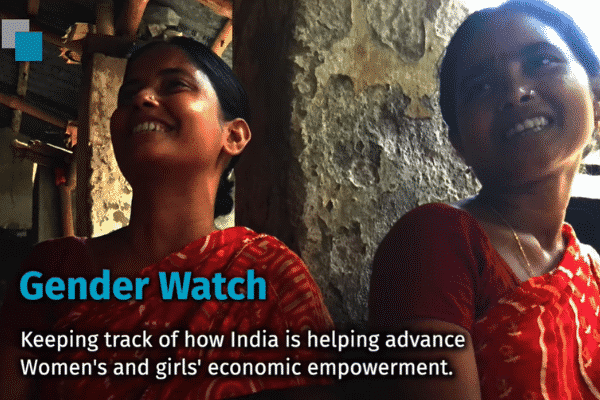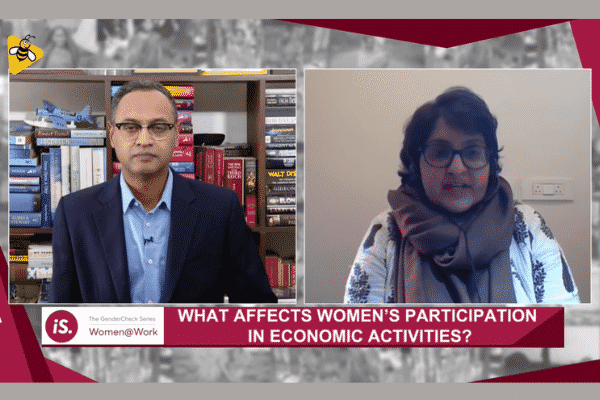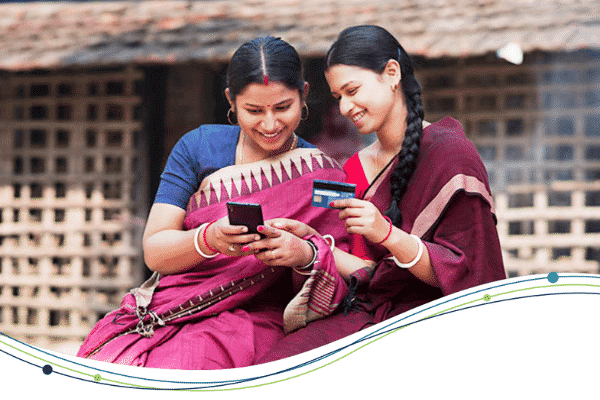| An international development economist, a renowned academic, a seasoned educator, and higher education administrator — Dr Sunder Ramaswamy (Vice-Chancellor of Krea University) interacted with students, counsellors and parents of students, sharing his expert insights on what it takes to think and become an Economist in today’s world. Dr Sunder shared in detail about all the career possibilities that come with pursuing the subject, drawing from his rich career experience, whilst elaborating on the right tools that help make one an exceptional Economist. |
Category: General Topics
Catalyst AIC chooses 10 startups to offer incubation support
| The Catalyst Atal Incubation Centre has selected its first cohort of 10 startups, from 110 applications. The 10 shortlisted startups are at the forefront of delivering disruptive and innovative solutions for artisan communities and clusters in India. Over the next six months, the startups will receive focused support from the incubator grounded in a curriculum-based approach. Learn more about the program here. |
LEAD at Krea partners with 3ie for Swashakt evidence programme
| Low female labour force participation rate remains a pressing concern in India, with less than 30 percent of women in rural areas engaged in productive work, paid or unpaid. Under the Swashakt evidence programme, the International Initiative for Impact Evaluation (3ie) is funding the implementation of a series of projects that support collectives and group-based models for women-led businesses, including non-farm and service enterprises that are operating in partnership with state rural livelihood missions. LEAD at Krea University has been chosen as the grants management partner for the evidence programme. As part of this initiative, LEAD will work closely with the 3ie team for the review and management of implementation grants funded under the programme. Click here for more details. |
GAME publishes insightful case study by IFMR GSB professors
Global Alliance for Mass Entrepreneurship (GAME) publishes a detailed case study on a rural social enterprise ‘Wild Ideas’, authored by IFMR Graduate School of Business (GSB), Krea University professors – Dr V Anantha Nageswaran (Distinguished Visiting Professor) and Dr S Raghu Raman (Professor of Organisational Behaviour). The case study captures this for-profit rural enterprise’s journey thus far, including its future directions.
Read the case study here.
Exploring career paths for psychology majors
As part of the Krea Engage series, Prof Amrita Narayanan in her session titled ‘What can you do with a degree in Psychology?’, discussed in detail about all the career possibilities that come with pursuing the subject in today’s world. Addressing students and counsellors, Prof Amrita shared insights drawn from her career experience and shed light on where a training in Psychology can take a student after graduation. The session also highlighted the specific skills necessary for clinical practice and how the degree serves as a great starting point for careers in science and the arts.
‘The role of networking in the workplace’ with Vijay Sivaram
| In today’s world, networking is viewed as an art form, especially with structures and communicative channels evolving day by day. While the mediums may have shifted, its importance, however, remains unchanged. Packed with insights, Vijay Sivaram – CEO of IT Staffing and Search & Recruitment, overseeing both India and Asia Pacific operations at Quess Corp – shared his knowledge on effective networking, where he went on to highlight the importance of improving one’s communication skills from a recruiter’s perspective. The session also touched upon areas relevant to young individuals joining the workforce. |
Prof Madhuri Saripalle co-authors chapter on mango value chains in India
| Dr Madhuri Saripalle – Associate Professor of Economics at IFMR GSB, Krea University – co-authored a chapter on Mango Value Chains in India as part of an edited volume titled ‘Transforming Agriculture in South Asia: Role of Value Chains and Contract Farming’. Published by Routledge, the study analyses numerous markets and value chains for mango namely HOPCOMS, SAFAL, APMC and pre and post-flowering contracts with wholesale agents that have different implications for farmer profitability. |
‘Gender Watch’ – an informative video series by IWWAGE
IWWAGE brings to you a video series called, “Gender Watch” which presents in a capsule format news stories, data highlights and the latest research and thinking on gender issues in India, particularly related to initiatives and interventions to empower women economically. The launch episode can be viewed here. For upcoming episodes, visit the Gender Watch section.
Examining the barriers to women’s employment
IWWAGE and IndiaSpend have come together for a year-long partnership to examine and analyse issues around women empowerment and strengthen the narrative that will encourage and allow for equal participation of women in economic activity. The partnership kicked off with a video interview featuring Soumya Kapoor Mehta, Head – IWWAGE, as part of the Women@Work 2.0 series, examining barriers and solutions to getting more women in paid work. Watch the interview here.
Enhancing livelihood opportunities with digital solutions for SHGs in Chhattisgarh
In Chhattisgarh, IWWAGE is partnering with the State Rural Livelihoods Mission (SRLM) and Haqdarshak Empowerment Solutions Private Limited (HESPL) to train SHG members on a digital application, which can enhance their livelihood opportunities. In addition to collaborating on the implementation of this livelihood model, LEAD and IWWAGE are also conducting an impact and process evaluation of the Haqdarshak programme, which will answer questions on its effectiveness and efficacy. Read more about the project and the milestones here.
